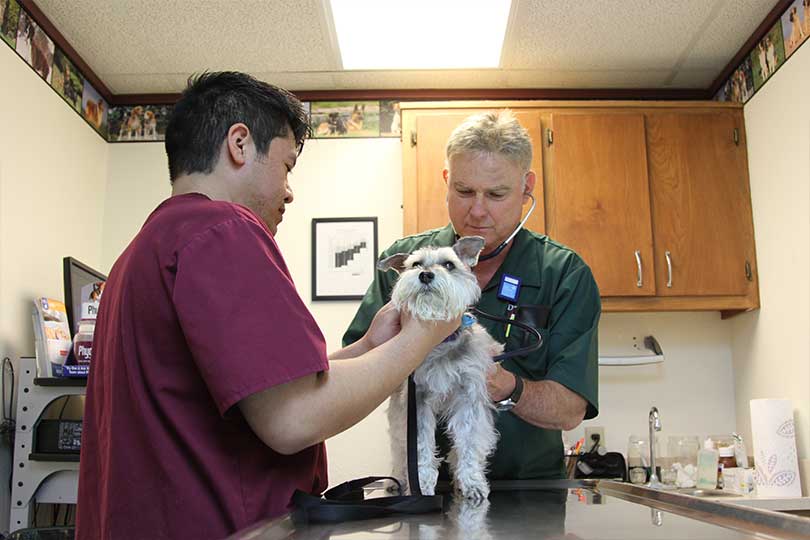By Jessica Domel
Multimedia Reporter
Just as there are myths about vaccinations when it comes to humans, there are plenty of myths and misinformation regarding the vaccination of pets.
According to Dr. Bob Judd, host of Texas Vet News on the Texas Farm Bureau (TFB) Radio Network, one of the more popular myths is if a pet doesn’t go outside, it doesn’t need to be vaccinated.
“First of all, most dogs do go outside to use the restroom and can be exposed to diseases. Although many cats are kept completely in a house, some do slip out from time to time,” Judd said. “The other concern is that although your pet may not go outside, you do. If a sick animal travels through your yard, and you step in that area, you can bring diseases, such as parvo, that can affect your dog in the house on your shoes.”
Rabies vaccinations are required by law regardless of whether or not the pet ever ventures outside.
“If your pet is unvaccinated for rabies and someone comes in your house and is bitten or even claims they were bitten and your pet is not vaccinated, the animal control officer has the authority to euthanize your pet and test for rabies,” Judd said.
Another vaccine myth is that vets make a lot of money from vaccines.
“This is just not the case,” Judd said. “Dogs and cats are vaccinated for most core vaccines only every three years. So, vets are giving tremendously less vaccines than in the past.”
Another myth is that some believe vaccines can cause disease.
“This is highly unlikely. If a pet was vaccinated and still developed the disease, it is likely the pet was exposed prior to vaccine or the pet’s immunity prevented the pet from responding,” Judd said.
There is a rare tumor that can develop at the site of some vaccines in cats, but Judd reports the incidence is less than one in every 10,000 vaccinations.
Judd’s daily program, Texas Vet News, can be heard on TFB Radio Network affiliates across Texas and online here.

